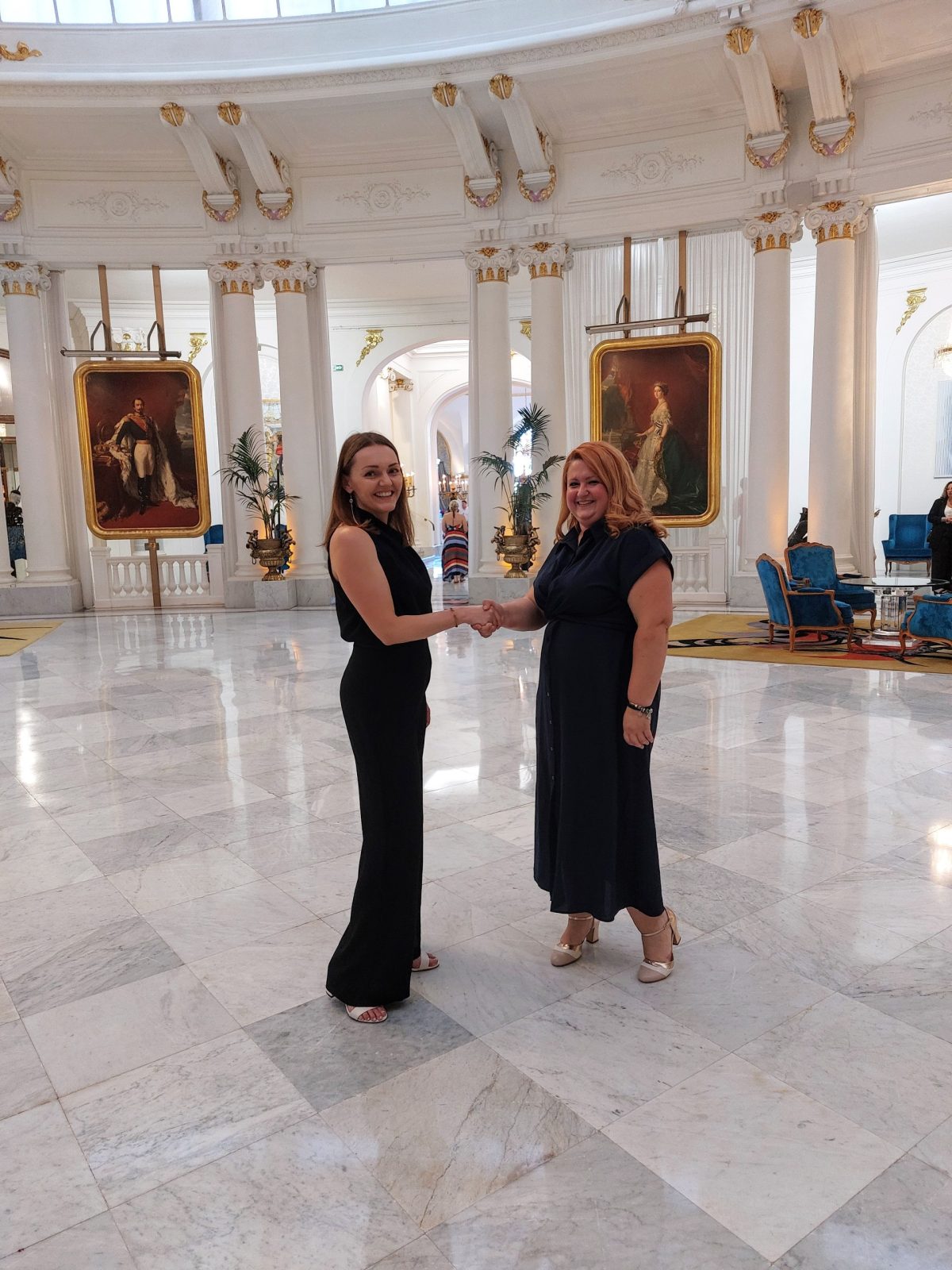
Polish and Italian researchers in fight against antibiotic-resistant bacteria
The research carried out as part of this Polish-Italian project could play a key role in the development of innovative antimicrobial therapies that will be effective in the future in the fight against growing antibiotic resistance, while also making an important contribution to the fight against the global health crisis.
“W poszukiwaniu nowych antybiotyków: synteza i charakterystyka peptydomimetyków opartych na przeciwdrobnoustrojowych peptydach z ludzkiej śliny w kompleksach z jonami Cu(II) oraz Zn(II)” (eng. “In search of new antibiotics: synthesis and characterization of peptidomimetics based on antimicrobial peptides from human saliva in complexes with Cu(II) and Zn(II) ions.”) – is a Polish-Italian project led by our researcher dr Joanna Wątła from the Faculty of Chemistry, University of Wrocław (Department of Biological and Medicinal Chemistry), which received funding under the Canaletto NAWA National Academic Exchange Agency competition at the end of 2024.
The project under the Canaletto program involves the collaboration of two research teams, led by female scientists who are “early in their careers” as defined by the ERC (or NCN). On the Polish side, the project is led by the team of dr Joanna Wątła of the UWr Faculty of Chemistry, while on the Italian side the project is coordinated by dr Valentina Borghesani of Università degli Studi di Parma, Department of Chemistry, Life Sciences, and Environmental Sustainability.
The research also involves young scientists mgr Anna Ślusarczyk, a doctoral student in the Doctoral College of Chemistry at the University of Wrocław (employed under the NCN OPUS-21 grant led by dr Wątła), and mgr Chiara Bottoni, a doctoral student in dr Borghesani’s team. The project combines the experience and knowledge of both teams in the field of biologically active metallopeptides, which guarantees the high quality of the research conducted.
What does the project involve? – It focuses on the development of antimicrobial compounds that could be used as new classes of antibiotics in the future. In the face of the growing global problem of antibiotic resistance, which could lead to as many as 10 million deaths a year from 2050, the search for new effective antimicrobial agents is one of the greatest challenges of modern science, emphasizes our chemist dr Joanna Wątły.
The project aims to optimize the properties of peptidomimetics based on antimicrobial peptides found in human saliva. The research involves the synthesis of native peptides and their modification with unnatural amino acids such as D-, γ- and β-amino acids to increase their metabolic stability and resistance to enzyme proteases. In addition, the biological properties of these peptides will be enhanced by interactions with metal ions such as Cu(II) and Zn(II) to improve their antimicrobial efficacy. Particular attention will be paid to determining the mechanism of coordination of metal ions with peptides, assessing their durability and characterizing their biological activity against pathogenic microorganisms.
The project involves not only the development of new compounds, but also the understanding of the relationship between the structure of peptidomimetics, their coordination properties and antimicrobial efficacy, which may contribute to the creation of new drugs effective against bacteria resistant to previously used antibiotics.
– Under the Canaletto grant, I will be working with an excellent research group at a renowned academic center – says dr Joanna Wątły. – We have consistent goals and compatible research methods. Well, and Parma, Italy… you know, great food and sunny climate are an added bonus – she adds.
The Italian team from Università degli Studi di Parma specializes in the synthesis of both native peptides and peptidomimetics with structural modifications, which ideally complements the scope of research conducted by the team from the University of Wrocław. In addition, Italy, with its rich research tradition and numerous scientific achievements in chemistry and biotechnology, is an ideal partner for the interdisciplinary approach required for this project. The cooperation with the University of Parma allows combining knowledge and experience in the synthesis of peptides (Italian side) with the characterization of their coordination and biological properties (Polish side).
The end result of the project will be the development of a new class of antimicrobial compounds based on complexes of metal ions with peptidomimetics of peptides from human saliva.
These compounds will be characterized by increased metabolic stability, resistance to enzymatic degradation, and high efficacy against antibiotic-resistant bacteria. – In addition, the results of the joint research will be published in reputable scientific journals with a high Impact Factor, which will help promote the achievements of the University of Wroclaw and international cooperation, and will be presented at international scientific conferences, which will increase the visibility of the project and allow us to exchange experiences with other research teams – our researcher emphasizes.
– The long-term effect of the project will also be the creation of a new platform for scientific cooperation between Poland and Italy, including further research on new antimicrobial compounds and the development of young scientists involved in the project – adds dr Joanna Wątły.
The research in the project will be funded under the OPUS-21 grant No. 2021/41/B/ST4/02654, headed by dr Joanna Wątła, titled “Mali, doskonale uzbrojeni wojownicy kontra potężni, pustoszący wrogowie – kompleksy modyfikowanych peptydów z ludzkiej śliny w walce z patogennymi drobnoustrojami,” funded by the National Science Centre.
Complied by Katarzyna Górowicz-Maćkiewicz
Date of publication: 7.01.2025.
Added by: M.J.



